
Do you have what you need to make your garden grow?


Garden Center
Store Hours
Mon-Sat:
6:00am - 10:00pm
Sun:
7:00am - 8:00pm
Curbside:
09:00am - 6:00pm
Location
Popular at Your Garden Center
Trending Garden Supplies in May
Trending Live Plants
Garden Project Calculators
;Resize=(703,395.44))
Grass Seed Calculator
When you're ready to seed your lawn, our calculator helps you estimate the amount of grass seed you'll need to get the job done.
;Resize=(703,395.44))
Mulch Calculator
Enter your preferred material, the square footage and mulch depth of the coverage space for accurate results.
;Resize=(703,395.44))
Fencing Calculator
We'll calculate the amount of fencing you should purchase based on your property needs.
Shop Outdoor and Garden Brands
Frequently Asked Questions About Gardening
How do I know what planting zone I'm in?
Check the USDA growing zone map, as planting zones have shifted over the years. Zones with higher numbers can plant earlier in the year. Increase your odds of successful gardening by choosing plants that are meant for your zone.
What does direct sowing mean?
If the soil isn't cold and frozen, consider planting your fruit, veggie, or flower seeds directly into your garden. This is called the "direct sow" method. The time to plant will be after the threat of frost is gone for the season, as seedlings and sprouts can't weather those conditions. You can also start your seeds indoors if you'd like. Consult your seed packet for how and when to sow seeds.
How do I plant seeds?
Read your seed package for the best info on how to grow fruits, veggies, and spring flowers — indoors or outdoors. Requirements vary with each seed type. Certain seeds should only be planted indoors, and your seed package will tell you that, too. You'll be a pro at planting seeds in no time.
Do I have to harden off my seedlings before planting them outside?
Yes, if you raised plants indoors from seeds in your own plant nursery, harden them before you transplant them. Hardening is the process of getting them used to the great outdoors. It slows their growth until they're strong and ready to take off during a spring warm front. Hardening also makes your plants more resilient to a sudden cold snap. Read your seed packets or speak to a garden center associate for more information.
What do I do before planting transplants or seeds outside?
Before you plant, make sure that your plant will have the right amount of sun, the soil is healthy, and it's warm enough outside. Check your seed packet to see if it likes partial sun, shade, or full sun, as well as what time of year it should be planted. Space your plants as described for best results so your plant babies have room to flourish.
What are seed tapes?
If you're dealing with extremely tiny seeds or want more guidance in planting, consider seed tapes. They're biodegradable pieces of paper with tiny seeds affixed at regular intervals. Just bury the tape and water as directed. If all goes well, your perfectly spaced sprouts will pop up soon.
Garden Project Ideas
The Home Depot Garden Center at Woodland Hills
Set Up For Springtime
On beautiful spring days, tidy the yard before everything blooms in earnest. Remember to measure your garden so you can find fresh mulch near you as soon as it's available. Don't forget to sweep the gazebo and clean out the shed in preparation for spring, too. No matter which plants you need and what outdoor projects you choose to tackle, you'll find that The Home Depot Woodland Hills Garden Center is the local plant nursery to help you enjoy your spring activities to the fullest.
Plant Hardiness Zones Explained
The first thing you should know when planting spring flowers, vegetables, and other seeds is your planting zone. Every location in the U.S. and its territories is sorted by climate. Find your zone on the USDA growing zone map and learn when to plant seeds.
For example, you could transplant bell peppers outdoors in mid-March in Zone 10, but not until the end of May in Zone 4. For best results, choose plants in your zone number or less. In other words, a Zone 8 garden can support plants listed as Zones 1–8. The timeframe to direct sow outdoors in your garden is often around a month later than the indoor start date. Always read your seed packet for details. If you start them a little later than recommended, it's not ideal, but it will likely even out as time passes.
Gardening in Your Growing Zone
This area is in growing Zones 8 or 9, but it's desert, so utilize greenhouses to grow herbs and vegetables. Native plants like succulents, cacti, and other hardy desert shrubs will easily grow outside. Other beloved garden vegetables love the heat, like squash, cucumbers, tomatoes, and peppers. If you start them indoors and carefully introduce them outdoors in the shade, you can enjoy raising vegetables even in a dry climate. However, many spring flowers are sensitive to that much heat and sun, so research to find varieties that can handle the weather before planting outdoors.
An indoor garden of greenery is also lovely, so create an oasis within your home. A sunroom or enclosed porch is a great place to encourage plant growth, especially with pots and plant stands of all sizes. Your spring flower seed choices, whether they're annuals or perennials, can also often get an indoor start.
Start Seeds Indoors
You can save money and gain the satisfaction of growing your garden from seeds by starting them indoors in your own seedling garden. We've got all the seed starter supplies you'll need. For best results, you'll want grow lights or a warming mat to go with your seed tray or planters. If you're planting a larger garden, use seed trays — like the ones you see sprouts in at your Woodland Hills Garden Center — to stay organized and plant tiny soil plugs when the time comes. You can also use pots with seed starter mix and potting soil.
Measure your finger to use it as a ruler. In general, you'll plant 3–5 seeds, then press them into the soil to the depth you need with your finger. Mark where you planted the seeds with a plant tag or toothpick. Otherwise, it'll be a surprise when the sprouts push out of the soil.
Sprouts
Prepare your seed sprouts for outdoor life while they're still indoors. These micro-seedlings are fragile — only an inch or so high, with the tiniest seedling leaf or two — but they're resilient. Seedlings certainly don't get all this pampering in nature when they volunteer and grow wherever they please, so they can handle more than you think. However, don't go overboard, as your sprouts are still babies. You can even use an oscillating floor fan on low to mimic the wind and strengthen their stems.
Harden Your Seedlings
When you're hardening your sprouts and gradually introducing them to the outdoors, be flexible. Keep an eye on your baby plants. Bring them inside or move them to a shady spot if they're looking rough. As always, make sure they're watered enough but not drowning. Whisk wilted plants inside and give them a good drink, making sure they're healthy before setting them outdoors again.
Transplant Young Plants Into Their New Homes
Carefully take your seedling out of the container. A good way to do this is to turn it upside-down or sideways and gently squeeze the plastic to break the seal. If your transplant grew in the garden, leave plenty of room around the stem and dig deeper than you think with your garden trowel. You don't want to damage the roots. Place it into the hole you dug for it, even with the surrounding soil.
Protect Your Garden With Mulch
Finish your planting by following it with mulch and compost. Mulch keeps your soil moist and controls weeds. Compost enriches the soil so your garden can grow even better. It may help foster stronger and larger plants that bear more fruit and flowers. Compost and mulch can be DIY creations, but you can also purchase them in-store. The next time you're looking for "mulch near me," stop by the Garden Center to get the perfect amount.
Greet the Spring
Early spring is an exciting time in the world of gardening. Prepare to fertilize your lawn, plan your garden and landscaping, and browse The Home Depot nursery to find inspiration on what to plant when the weather warms. For those without lawns, consider adding artificial grass, an outdoor rug, or a pellet grill to your patio or balcony. Shop for the fertilizer, soil, and seeds you need in the aisles of your Woodland Hills Garden Center, online, or on our mobile app. Let's get growing together.
Nearby Stores
Find Another Store
22855 Victory Blvd
West Hills, CA 91307
1.86 mi
Mon-Sat: 6:00am - 10:00pm
Sun: 7:00am - 8:00pm
21218 Roscoe Blvd
Canoga Park, CA 91304
2.27 mi
Mon-Sat: 6:00am - 10:00pm
Sun: 7:00am - 8:00pm
16800 Roscoe Blvd
Van Nuys, CA 91406
5.91 mi
Mon-Sat: 6:00am - 10:00pm
Sun: 7:00am - 9:00pm
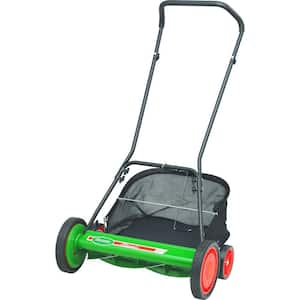
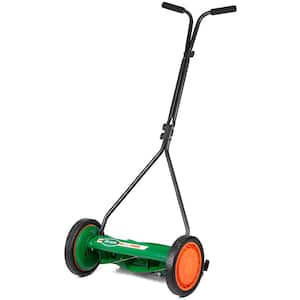
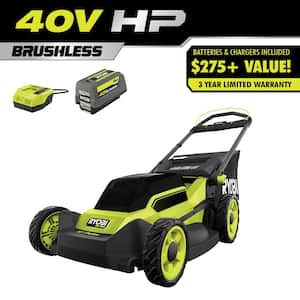
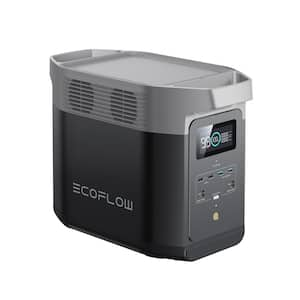
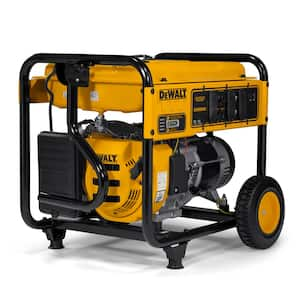
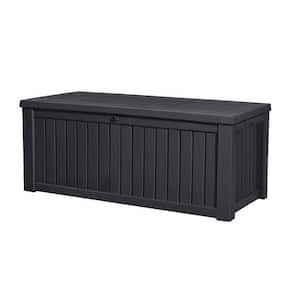
)
)
/17_514245_S_012_Product%20Image%20(square).jpg?im=Resize=(300,300))
;Resize=(300,300))
)
)
)
)
)
/2023_P2_Rain_Barrels_Product%20Image%20(square).jpg?im=Resize=(300,300))
)
;Resize=(300,300))
;Resize=(300,300))
;Resize=(300,300))
/12_SOIL_B_0420_Social%20media%20(square).jpg?im=Resize=(300,300))
;Resize=(300,300))
)
)
;Resize=(300,300))
;Resize=(300,300))
;Resize=(300,300))
;Resize=(300,300))
)
)
;Resize=(300,300))
;Resize=(300,300))
;Resize=(300,300))
;Resize=(300,300))
;Resize=(300,300))
)
/18Patio_Camden_Seagrass_5pcSeating_Planters_302468736_DTL3_L_Social%20media%20(square).jpg?im=Resize=(300,300))
;Resize=(300,300))
;Resize=(300,300))
;Resize=(300,300))
)
;Resize=(300,300))
;Resize=(300,300))
)
;Resize=(300,300))
)
.jpeg?im=Crop,rect=(363.69230769230774,1.2307692307692308,958.7692307692308,958.7692307692308);Resize=(300,300))
;Resize=(300,300))
)
;Resize=(300,300))
;Resize=(300,300))
)
;Resize=(300,300))
)
)
;Resize=(300,300))
;Resize=(300,300))
)
)
;Resize=(300,300))
)
;Resize=(300,300))
;Resize=(300,300))
)
)
;Resize=(300,300))
)
)
/Capello_Spring_Mum_10in_Social%20media%20(square).jpg?im=Resize=(300,300))
;Resize=(300,300))
)
)
;Resize=(300,300))
)
)
;Resize=(300,300))
)
)
;Resize=(300,300))
;Resize=(300,300))











































